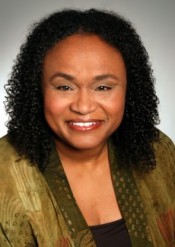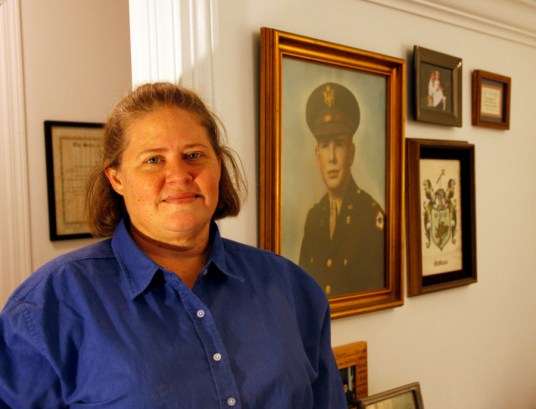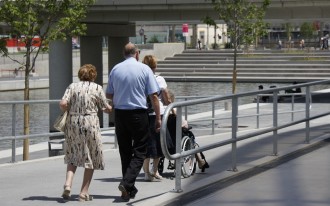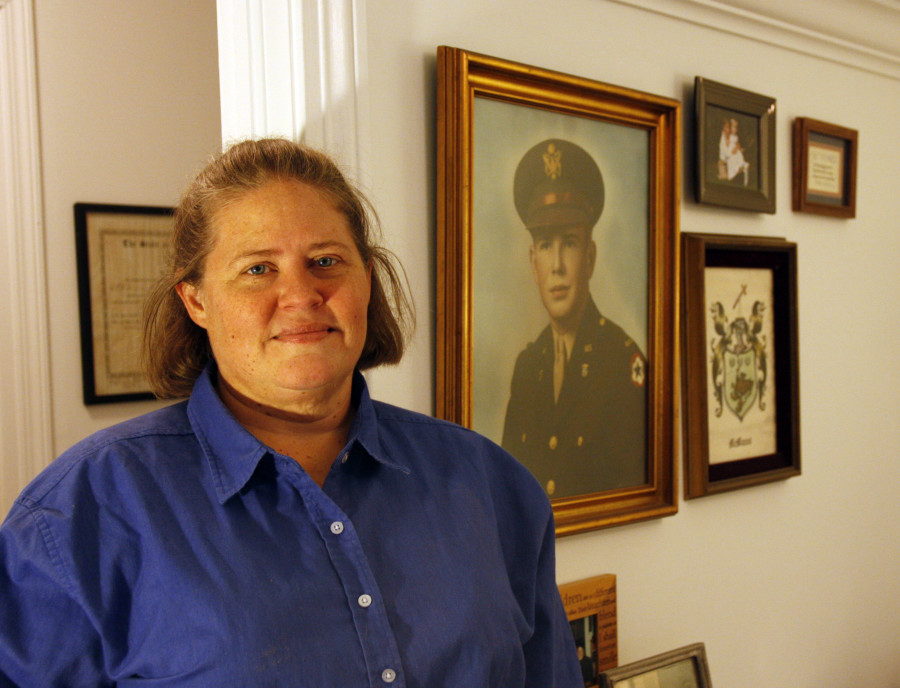“I have cleaned bed pans. I have cleaned the potty chair,” says Carol Lively, pausing to think before counting off the next task on her fingers. “I have changed dressings. I got to learn about open wound care, and I learned about prosthetics when I was young.”
Lively, who is 44 and lives in Watkinsville, was 6 years old when she began helping her severely diabetic grandmother. Granny had moved in with Lively’s newlywed parents in 1968, before Lively herself was born, so this seemed normal to her.
Granny became less mobile and her health needs increased over time, but Carol Lively and her mother, Linda, were there. They looked after Granny for two decades, until her passing in 1988.

Diabetes is considered a chronic disease, a sprawling category that also includes cardiovascular disease, certain respiratory conditions, obesity, and Alzheimer’s.
Today, half of Americans have at least one chronic disease. We often think of these disorders in bleak snapshots – first, the scary diagnosis, later a drawn-out death. But the real story of illness unfolds in between.
Living with a chronic disease is all about managing its effects, says Dr. Toni Miles, a physician and gerontologist at the University of Georgia. This is easier said than done as disability increases and family members – people like Carol and Linda Lively – become increasingly involved.
“When you develop complications of diabetes, whether it’s a heart attack or an amputation or some kind of cognitive event, your family will have to pick up the slack,” says Miles. Once that happens, you join the ranks of family caregivers. There are 65.7 million in the United States today.
The Northeast Georgia Area Agency on Aging is a resource for people adapting to this role. The agency is one of 12 that coordinate with the Department of Aging Services and community-based programs to serve Georgia’s elderly population across the state.
The agencies offer a wide range of services for caregivers, including counseling, help finding financial aid, and even adult daycare or respite care, when the caregiver just needs a break.
“Most people who call are between 35 and 60,” says Megan Vogt, an education specialist who helps family members get the tools they need to care for loved ones.
Not everyone is calling for help with aging parents: Vogt’s clients are looking after aunts, uncles, brothers, sisters, children . . . or even neighbors.
And the people calling are usually women. In fact, two-thirds of family caregivers are women.

Neglecting their own needs
Vogt believes the first thing family caregivers need to learn is to how to maintain their own health. “We ask people to think, ‘When was the last time I did something for myself, for my health?’ ” says Vogt. Family caregivers, she says, give all their time and energy to their loved one, and they eventually get run down.
“You know, they spend all this time at doctors’ appointments with the care receiver that they stop going [to get care] for themselves.” Many of them, Vogt adds, don’t eat well because healthy meals take too long to prepare. In time, caregivers get sick themselves.
These caregivers are the unseen victims, says Miles. “They’re sacrificing themselves. We need to protect them.”
Lively knows that her mom was stressed by the demands of caring for her diabetic mother-in-law.
But, Lively asks, who else was going to do it? The average cost of a home health aide is about $21 per hour in this part of Georgia. Sometimes family is the only option.
Carol and Linda Lively embarked on a long road that ended when Granny died in 1988. Linda Lively returned her full focus to the family HVAC and plumbing business. Carol began exploring career paths, one of which would eventually lead her back home to work in the family business.
A new journey began in 2008, when Carol Lively became the primary caregiver for her maternal grandfather, who was diabetic and had Alzheimer’s disease. She stepped into the role when it was obvious her mother could not. It was too much for her mom, says Lively, to be in charge of her own father’s health.
“You see this person who has been this [guiding] figure in your life, and now you’re having reversed roles,” Carol Lively says.

Effectively swapping the role of child for the role of parent is one of the most painful changes that caregivers face, Vogt says.
This can contribute to the depression that gradually overtakes many caregivers who are exhausted by toughing it out alone. By the time most clients call the agency, looking for respite care or access to a day program, they’ve been caregiving for one or two years, and they’re desperate. Finding help before you’re in a crisis is crucial, says Vogt.
But many people are reluctant to talk about an illness in the family, even if the yoke is a heavy one. Lively doesn’t regret being able to help her grandfather, and she misses him, but she admits she felt a certain relief when he died. “I’m glad I got the time, but . . . ” And she reflects graphically on the unpleasant but unavoidable details of caring for a helpless adult.
Although Lively speaks matter-of-factly about the years of home care she provided to her father’s mother, and then to her mother’s father, the flow of words slows to a trickle when conversation turns to her own parents. They aren’t in the best of health, she admits.
Her next turn as caregiver may be on the horizon, and she doesn’t have much to say about it yet.
Lauren Baggett is a health and medical journalism graduate student at UGA’s Grady College of Journalism and Mass Communication, where she also received her bachelor’s degree in magazine journalism in 2009. For five years she managed the sales and marketing team for a local Athens company, but her growing interest in health, food, and mental wellness motivated her to return to journalism. She hopes to write about the intersections of health and culture in the future.

